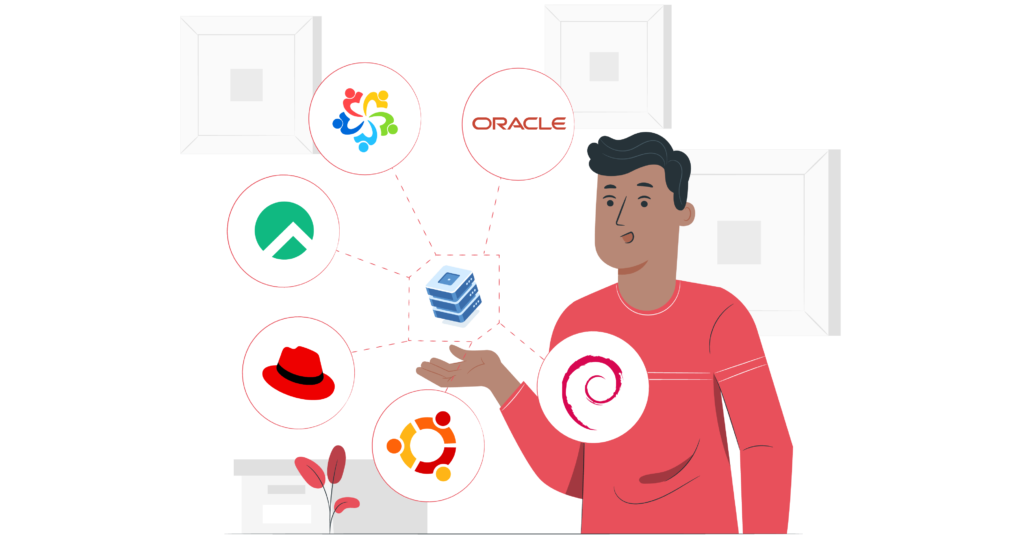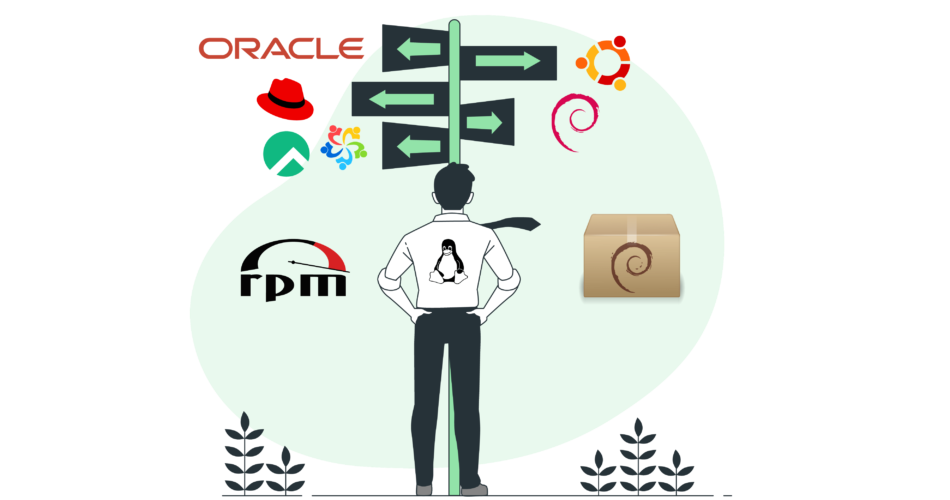As we know, CentOS comes with all the goodies that are provided with RHEL at absolutely free of cost. For this reason, it has been used everywhere in production environments and beloved by system administrators.
Red Hat announced that CentOS 8 version will no longer LTS supported and discontinued at the end of 2021 and the rolling version CentOS Stream as the downstream branch of RHEL. It means a rolling version with frequent updates that’s no longer suitable for production workloads.
We started digging into the different options. Here are some of the alternative distributions we can consider as a replacement of CentOS.

However, CentOS 7 will be supported until June 30, 2024. But if you want the most up-to-date 1:1 binary compatible with RHEL clones, you’ll soon be out of luck.
Are you a CentOS user and searching for a suitable replacement to fill the gap left by the discontinuation of the CentOS Linux stable release? You’re not alone on the planet.
One of the options we can take is to migrate to CentOS Stream. However, this is not recommended especially for production server environments.
CentOS alternatives list with comparison
Comparison between Oracle Linux, Rocky Linux, AlmaLinux, RHEL, Ubuntu and Debian
| OS | Oracle Linux | Rocky Linux | AlmaLinux | RHEL | Ubuntu | Debian |
| Binary Compatibility | 100% | 100% | 100% | 100% | 0% | 0% |
| Package Manager | rpm | rpm | rpm | rpm | deb | deb |
| Long Term Support | 11 years | 10 years | 10 years | 10 years | 10 years | 5 years |
| Migration | Possible | Possible | Possible | Possible | Not Possible | Not Possible |
| Cost | Free | Free | Free | Not Free | Free | Free |
list of CentOS alternatives with 100% binary compatible
1. Oracle Linux (Recommended)
Oracle Linux provides a 100% application binary compatibility to Red Hat Enterprise Linux and CentOS Linux. It is supported across both hybrid and multi cloud environments. Also allows you to migrate from CentOS without reinstalling. It offers two different kernels, Unbreakable Enterprise Kernel and Red Hat Compatible Kernel. Oracle guarantees that Oracle Linux source code and binaries will always be free, however, if we need support, it costs $1.199 annually.
Features:
- Designed for Hybrid Cloud
- Linux patching without reboot
- Suite of Linux optimized tools
Website – oracle.com
Migration steps- CentOS 7 to Oracle Linux 8
2. Rocky Linux
Another suitable replacement for CentOS is Rocky Linux, which is also 100% compatible with RHEL and CentOS. It is a free, community-based server-oriented Linux distro developed by CentOS’s original co-founder, Gregory Kurtzer.
Rocky Linux is enterprise-ready, providing solid stability with regular updates and a 10-year support lifecycle, all at no cost. Also they provide an easy-to-use migration script, free of charge.
Features:
- Stable, Production Ready Linux
- Community Supported
- Easy Migration
Website – rockylinux.org
3. AlmaLinux OS
AlmaLinux OS is an open-source, community-driven Linux operating system that fills the gap left by the discontinuation of the CentOS Linux stable release. AlmaLinux OS is a 1:1 binary compatible clone of RHEL® guided and built by the community.
As a standalone, completely free OS, AlmaLinux OS enjoys $1M in annual sponsorship from CloudLinux Inc and support from other sponsors. Ongoing development efforts are governed by the members of the community.
Features:
- Production Ready Linux
- Fully supported
- Effortless to switch
Website – almalinux.org
4. Red Hat Enterprise Linux
Red Hat Enterprise Linux is the world’s leading enterprise Linux platform. Everywhere enterprise IT is headed, Red Hat® Enterprise Linux® is there. From the public cloud to the edge, it evolves to bring flexibility and reliability to new frontiers. This is the stable foundation for untold innovation.
Red Hat Enterprise Linux extends your hybrid cloud infrastructure to the edge, scaled across hundreds—or even hundreds of thousands—of nodes all over the world. Create edge-optimized OS images, minimize workload interruptions caused by OS updates, transfer system updates more efficiently, and have confidence in automatic health checks and rollbacks.
Features:
- Subscription benefits
- Fully supported architectures
- Consistent performance
Website – redhat.com
CentOS alternatives List of non-RHEL compatible distributions
1. Ubuntu
Ubuntu is one of the most popular Linux distributions in Debian family, both on server and desktop use. Although we can consider Ubuntu server as a CentOS alternative when you are building a server from scratch. The Debian Linux family tree uses various software packages that CentOS is not using. On the other hand, Ubuntu is not an RPM-based Linux distribution.
For using the RPM packages on Ubuntu, you can use Alien to convert the package into a DEB file. If you are 100% sure that Ubuntu meets all your demands and it is the best option for you, you can move from CentOS to Ubuntu but don’t forget, it is a really big decision.
Features:
- scale-out performance
- Deploy-anywhere technology
- Run on all major architecture
Website – ubuntu.com
2. Debian
20+ years of experience with over 60,000 packages. Ubuntu LTS server is also based on Debian. It is also widely used by software and hardware developers because it runs on numerous architectures and devices.
Also offers a public bug tracker and other tools for developers. If you plan to use Debian in a professional environment, there are additional benefits like LTS versions and cloud images.
Features:
- Stable and Secure
- Extensive Hardware Support
- Provides smooth Upgrades
Website – debian.org
Closing thoughts
If you are using AWS then Amazon Linux 2 is there, whereas GCP offers all the major options and Azure also support all major options. On the other hand, CentOS 7 is not going anywhere until 2024 if you are using CentOS 7, so no need to haste to find and switch to CentOS alternatives, especially for servers. And of course, in 2 years we will have more solid and stable options to replace CentOS 7.
